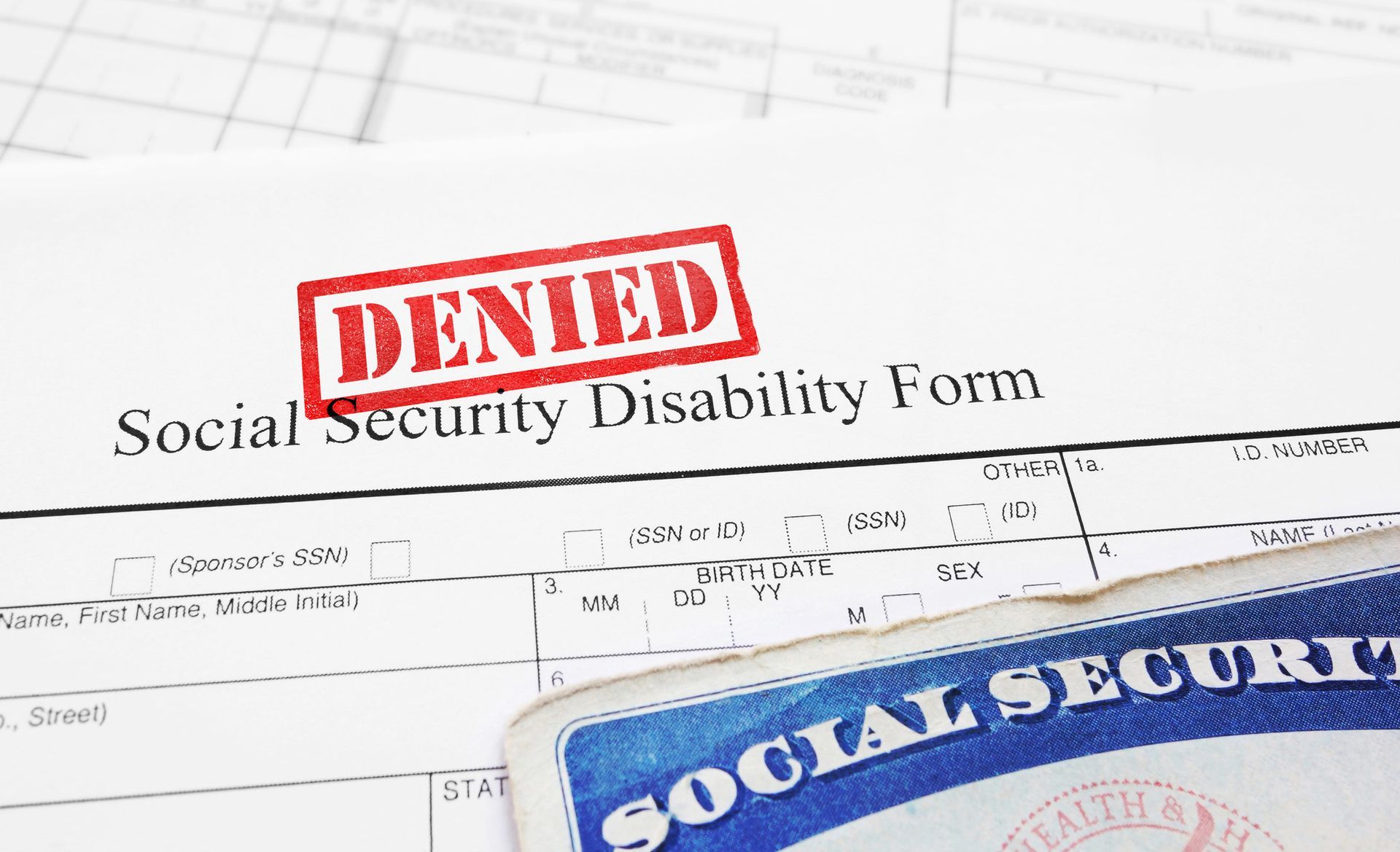Social Security Disability Attorney: A Guide to SSD Appeals

Denied disability benefits? You’re not alone, and your case is far from over. A SSD attorney serving Cook County, IL, can help you turn a denial into a second chance by navigating strict deadlines and social security rules. When you consult an attorney, you gain a guide who understands how to document limitations and frame your work history effectively. With a SSD lawyer you can shore up medical records and prepare clear testimony. At Horn & Kelley, PC, working with a SSD attorney means you’ll learn what matters most to decision-makers and how to avoid missteps. If stress has you thinking of giving up, remember: a SSD attorney can step in now.
Initial Denials Are Common So Don’t Panic
The first thing to know is that initial denials are common. Many legitimate SSD claims get turned down the first time because something was missing, unclear, or submitted too late. That doesn’t mean you don’t have a strong case—it simply means the Social Security Administration did not see enough proof yet. The appeals process exists precisely for this reason: to give you a chance to correct the record, add new medical evidence, and clarify how your condition limits your ability to work. Staying calm, staying organized, and acting within deadlines are the keys to moving forward effectively with your SSD attorney.
Understanding the Four Levels of the Appeals Process
Before you start, it helps to see the full roadmap.
There are four levels of appeal:
- Reconsideration: You generally have 60 days from the date of the denial letter to request reconsideration. A different claims examiner will review your file. This is your chance to add any new medical records, test results, or treatment updates that were not in your file the first time. An SSD attorney can help identify what evidence is missing and how to present it clearly.
- Hearing Before an Administrative Law Judge (ALJ): If reconsideration is denied, you can request a hearing. This is often the best opportunity to win because you can tell your story in person to a judge who will ask questions and hear from a vocational expert. Preparation with your SSD attorney is crucial—what you say and how you say it matters.
- Appeals Council Review: If the ALJ denies your claim, you can ask the Appeals Council to review the judge’s decision for errors. The Council can affirm, reverse, remand (send back) your case, or decide not to review.
- Federal Court: If the Appeals Council denies review or upholds the decision, you can file a civil action in federal court. This step focuses on legal and procedural issues rather than new evidence.
Every step has deadlines and technical requirements. Building a strong record early—at application or reconsideration—can improve your chances later. Above all, consistency across your forms, medical records, and testimony helps decision-makers understand your limitations.
Reconsideration With a Social Security Disability Attorney
Reconsideration is your first chance to fill the gaps. Start by gathering all medical updates since your initial application: clinic notes, imaging, lab results, hospital records, and any new diagnoses. Ask your treating providers for detailed statements that connect your medical findings to functional limitations—what you can and cannot do consistently on a workday basis. For example, can you sit for 20 minutes at a time, stand for 10, lift five pounds occasionally, or need to lie down during the day? Concrete, functional details carry weight.
Request a Residual Functional Capacity (RFC) opinion from your provider if appropriate, and make sure medication side effects (like sedation, dizziness, or gastrointestinal issues) are documented. Update work history forms thoroughly. If your condition worsened or led to job losses, note the dates and reasons. Submit everything within the timeframe; missing deadlines can end your appeal before it begins.
Hearing Before an ALJ: Where Your Story Matters Most
The ALJ hearing is often the turning point. It’s a formal proceeding but not a jury trial. An Administrative Law Judge will ask about your symptoms, daily routines, treatment, and past jobs. A vocational expert will testify about whether someone with your limitations could perform your past work or other jobs in the national economy. Preparation is essential: practice answering questions plainly and honestly with your SSD attorney, focusing on frequency, duration, and severity of symptoms as well as good and bad days.
Your treating providers’ notes should support what you plan to say. Gaps in treatment, inconsistent statements, or activities that look like heavy physical demands can undermine credibility. Before the hearing, review your file, check for errors, and ensure your medical evidence is up to date. A seasoned SSD attorney can help you anticipate the judge’s questions, refine your testimony, and respond to hypothetical questions posed to the vocational expert.
Evidence That Moves the Needle
Certain evidence tends to carry more persuasive force in disability appeals:
- Longitudinal Records: Consistent treatment over time that shows progression, persistence, or flares in symptoms.
- Objective Findings: Imaging, EMGs, pulmonary function tests, and lab work that corroborate reported limitations.
- Functional Narratives: Provider notes that speak to stamina, pace, attendance, and recovery time after exertion.
- Treatment Responses and Side Effects: Notes on why medications, injections, or surgeries helped only partially—or not at all—and how side effects affect function.
- Third-Party Statements: Observations from people who see you day-to-day can support your account of limitations.
Common Pitfalls to Avoid
Avoid these issues that frequently weaken appeals:
- Missing Deadlines: Even strong cases can fail if you miss the 60-day window.
- Inconsistent Forms: Make sure your function reports match your testimony and medical notes.
- Gaps in Care Without Explanation: If you couldn’t afford treatment or faced access barriers, say so and document it.
- Overstating or Understating Abilities: Accuracy builds credibility; exaggeration or minimization can backfire.
- Social Media Contradictions: Photos or posts suggesting strenuous activity can be misinterpreted; context matters.
- Ignoring Mental Health: Depression, anxiety, or cognitive issues should be documented with your SSD attorney and connected to work-related limitations when present.

Timeline, Expectations, and Staying Organized
Appeals can take months, and hearings may take longer depending on the backlog. While you wait, keep seeing your providers as recommended, follow treatment plans, and save new records. Track symptom fluctuations in a simple journal: note sleep quality, pain levels, fatigue, mental focus, and how often you need to rest. This helps you recall specifics at the hearing and gives your providers information to document your limitations accurately.
Check your mail and online account frequently. Respond quickly to any Social Security forms. If you move or change phone numbers, update your contact information immediately so you don’t miss important notices. A consistent, proactive approach shows decision-makers you’re engaged and helps keep your social security disability attorney moving for your case.
Appeal With Confidence Today
If you’ve been denied, think of it as the beginning of a more complete record—not the end of the road. Each level of appeal gives you a structured way to fix omissions, add evidence, and explain your limitations more clearly. Many claimants succeed on appeal after strengthening their files and preparing thoroughly for the ALJ hearing. With focus, persistence, and strong documentation, you can give your case the best chance to be heard and approved.
Don’t let a denial stall your life. To map out your next steps and deadlines, call Horn & Kelley, PC today at (888) 921-5297. A SSD attorney serving Cook County, IL, can help you gather crucial medical records and sharpen your testimony. When you work with a SSD lawyer you bring structure and strategy to a confusing process. If you’re unsure where to begin, a SSD lawyer can outline your timeline and evidence plan right away. For those anxious about a hearing, a disability attorney can prepare you to answer tough questions with clarity.



